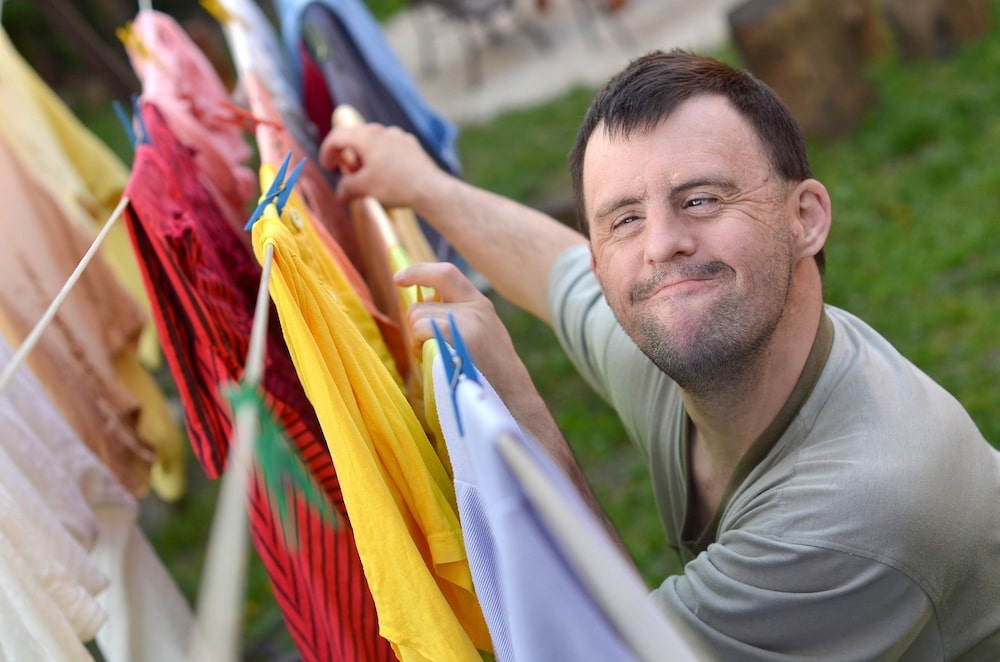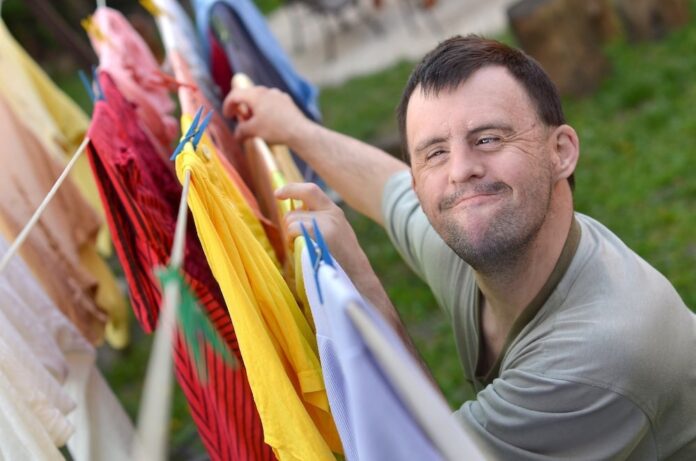Navigating support systems for individuals with disabilities can be overwhelming, especially since programs vary per state. A recent PBS article titled “What Happens to the developmentally disabled as parents age, die?” asked a tough question. The answer: Aging or ill parents and/or caregivers should plan ahead for the needs of adult children with disabilities, says Deborah Linton, Chief Executive Officer for the The Arc of Florida, a nonprofit that promotes and protects the human rights of people with intellectual and developmental disabilities and actively supports their full inclusion and participation in the community throughout their lifetimes. “The time to make a transition in life is not during a crisis,” she explains, “so I encourage individuals to start planning sooner as opposed to later.”
An individual born with a developmental disability has the right to institutional care if they want it. “Most people in Florida (and around the nation) today choose not to accept institutional care to stay in the community,” says Melanie Mowry Etters, Communications Director at the Agency for Persons with Disabilities (APD), of the common decision to opt for a Medicaid waiver. To be eligible for APD services, one must be a Florida resident and have one of the following seven developmental disabilities: autism, cerebral palsy, intellectual disabilities, Down syndrome, Prader-Willi syndrome, Phelan-McDermid syndrome or spina bifida, or children age 3-5 who are at a high risk of a developmental disability. “In Florida, we have a very expansion waiver. We offer 27 different types of services. Not all states have such a rich waiver; others are limited to 8 or 10 services,” proclaims Mowry Etters, who says that 33,000 people currently have waivers, which is typically a lifelong commitment on behalf of the state. An individual assessment, determined by a questionnaire for situational information (QSI) score, determines one’s allotment through iBudget Florida, a new and improved funding system that gives APD customers more control and flexibility to choose services that are important to them.

“It’s been wonderful for families because, many years ago, the only choice you had for care was to be placed away from home in an institution. And the waiving of those standards allowed Medicaid dollars to flow into the community for services in their own homes,” says Linton; however, she acknowledges that Medicaid remains bias toward institutional care, citing: “because the payment for institutional care is so much higher than what it is in the community.”
Demand for services in Florida has increased, in part because the state’s population continues to rise, including retired and/or aging residents who have adult children with disabilities. As a result, unfortunately, Florida has a lengthy list of 20,000 people waiting for services. “Florida puts up 40% towards every Medicaid dollar so it’s a 40% to 60% match from the Federal government. That 40% is state general revenue dollars and, so, that’s the fight usually downtown in the legislature for more money to go into the budget. There is obviously lots of conflicting interests’ downtown because Florida has to put up your taxpayer money,” Linton explains. Mowry Etters declares that about half of the people on the waiting list receive services elsewhere, such as youth under the age of 21 who qualify for services under the Medicaid State Plan and are waiting for future services; but a gap does remain. APD also offers a waiver option for those in a crisis situation (homeless, danger to self or others or caregiver unable to give care), which has helped about 6,000 people with “one-time” services.
The waiver is designed to serve the individual with the disability such as with transportation, job coaching, adult day programs and more, but may naturally help families. “The waiver could fund a respite caregiver should the primary caregiver take a vacation, ”suggests Mowry Etters. Additional services may be available through the Agency for Healthcare Administration, Department for Elderly Affairs, Department of Children and Families, Department of Health, and Department of Education. Linton also suggests that families on the waiting list utilize Florida Vocational Rehabilitation (VR), a federal-state program that helps people who have physical or mental disabilities get or keep a job; Center for Autism and Related Disorders (CARD), a program using applied behavior analysis (ABA) in the treatment of autism; and community-based adult programs facilitated by local school boards, universities or organizations. Among those in Central Florida, Linton favors Morgan’s Place, a “multi-sensory wonderful” for children (Melbourne); Camp Boggy Creek, a medically-sound recreational environment for children with illnesses (Eustis); and the Florida Center for Students with Unique Abilities, an effort providing financial support (and more) so students with intellectual disabilities have opportunities for on-campus college experiences and employment opportunities through degree, certificate or non-degree programs.






